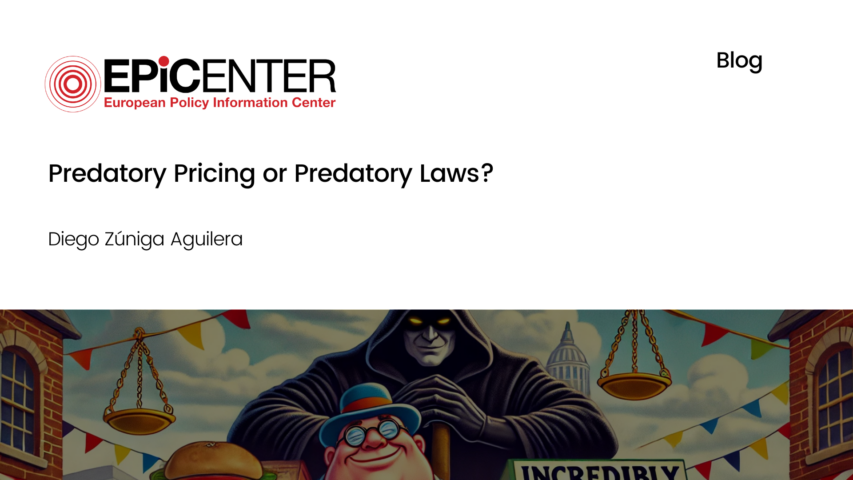Predatory Pricing or Predatory Laws?

Predatory Pricing or Predatory Laws?
Diego Zúniga Aguilera // 17 October 2019
The European Commission has fined in July telecommunications multinational Qualcomm with €242 million as it condemns them for selling chipsets “below cost” and therefore espousing predatory pricing mechanisms with the intention of eliminating Icera, a competitor. In fact, between 2009 and 2011, Qualcomm agreed the sale of certain quantities of their Universal Mobile Telecommunications System baseband chipsets with Huawei and ZTE.
Under their antitrust laws the Commission judges such practices as harmful, tagging it as predatory pricing. They state the following: a “dominant undertaking engages in predatory conduct by deliberately incurring losses or foregoing profits in the short term, so as to foreclose or be likely to foreclose one or more of its actual or potential competitors with a view to strengthening or maintaining its market power, thereby causing consumer harm.”
While the first part of their definition succeeds to describe how free markets work, the second part concerning consumers is an equivocal conclusion. Consumers benefit from market competition when prices are cut. Companies compete in order to stand out from the crowd. This means adopting practices such as lowering prices and selling innovative products and services which satisfy consumer needs.
Although these measures are not always necessary to succeed in the marketplace, often this is what enables corporates to remain successful or new ones to enter the market. For instance, market competition is what enables us to choose between different internet providers, or to fly from Belgium to Italy for €10. Therefore, employing protectionist tools such as this antitrust law can do actual harm to consumers: for example, it can make chipsets more expensive and therefore raise the production costs of devices that use them. This would lead to a rise in the product’s price.
Thomas DiLorenzo, an economist, explains that: “The theory of predatory pricing fails to recognize that price cutting – even below average cost – is a normal activity in competitive markets.”. While the Commission believes Qualcomm’s conduct was detrimental for competition, as “it prevented Icera from competing in the market, stifled innovation and ultimately reduced choice for consumers”, the Executive Vice President of Qualcomm stated that the main reason that these two companies agreed to buy their chipsets was because of their technological superiority.
Whether it be technological superiority or lower prices, the Commission should restrain from dishing out these fines. Lowering prices is an inherent characteristic of markets, enabling the flourishing of cheaper and better goods and services, consequently increasing the variety of choice consumers have.
By adopting these antitrust laws, the European Commission is failing to put into practice what they embrace in theory: free markets. When embracing these protectionist tools, the they fail to recognize the ambiguity in their goals. For instance, anti-predatory pricing efforts are helping protect inefficient firms in a marketplace where they would not otherwise succeed against their competitors. Maintaining a position in the market due to big investments and risk, is completely different to maintaining it due to legal burdens masked as “fair competition”.
In the long run, it is mainly consumers who will be negatively affected by these anti-predatory pricing laws, as they will be forced to pay higher prices or to consume less innovative products. Policymakers should not focus on the theoretical principle of fairness, but on actual, real-world outcomes. Competitive pricing will remain at the centre of well-functioning markets, as it has been throughout history.
The chipsets sold by Qualcomm are essential for shortening distances and connecting people easily. They enable phones and tablets to connect to the internet. We should be asking ourselves, what can happen if this technology becomes more difficult to acquire? Should companies be fined for incurring day-to-day market practices?
EPICENTER publications and contributions from our member think tanks are designed to promote the discussion of economic issues and the role of markets in solving economic and social problems. As with all EPICENTER publications, the views expressed here are those of the author and not EPICENTER or its member think tanks (which have no corporate view).



